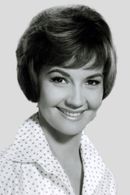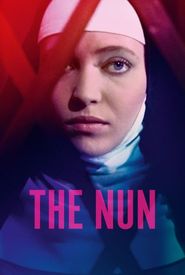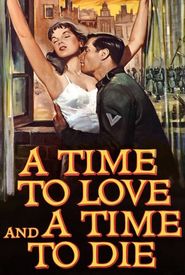Lieselotte Pulver attended business school, after which she pursued a career in acting. Her first major roles were in the theater, and she quickly gained recognition. In 1949, she made her film debut in "Swiss Tour" alongside Simone Signoret, Cornel Wilde, and Heinrich Gretler.
Pulver's breakthrough came in 1954 with the Swiss production "Uli, the Knecht". This success was followed by the sequel film "Uli, the Tenant" in 1955, and "I often think of Piroschka" in the same year, which also made her popular in Germany. The film was directed by Kurt Hoffmann.
From 1957, Hoffmann directed Pulver's trilogy of the so-called Spessart films, which included "Das Wirtshaus im Spessart" (1957),"Das Spukschloss im Spessart" (1960),and "Magnificent Times in the Spessart" (1967). In 1957, Pulver took part in her first film adaptation of a Thomas Mann novel in "Confessions of the Imposter Felix Krull" alongside Horst Buchholz.
In 1959, she appeared in front of the camera alongside Nadja Tiller for the film adaptation of Mann's novel "The Buddenbrooks". The first highlight in Pulver's career was the 1960 film "The Glass of Water" by Helmut Käutner, in which she played alongside Gustav Gründgens.
Pulver now became, alongside Maria Schell, one of the most popular actresses in German post-war films. In 1960, she presented one of her brilliant roles alongside Curd Jürgens in "Gustav Adolf's Page". In 1961, Pulver starred in the famous Hollywood film "One, Two, Three!" by Billy Wilder.
In the same year, she married the actor Helmut Schmid. She also appeared in front of the camera for "The Young General" and "Lafayette". Pulver also gained great audience sympathy for her collaboration with the German film star Heinz Rühmann, alongside whom she appeared in the humorous films "Dr. med. Hiob Prätorius" and "Hocus Pocus or: How do I make my husband disappear...?" in 1965.
The actress received a Golden Globe nomination in 1963 for her role in "State Affairs". However, she failed to achieve a breakthrough in America. She couldn't accept the offer to play the lead role alongside Charlton Heston in "El Cid". The role was successfully cast with Sophia Loren.
In the 1970s, Pulver appeared in films such as "Monika and the Sixteen-Year-Olds" and "I Think My Hat is Burning." She also starred in series such as "Hooper's Last Hunt" and "The Old Man: A Suitcase". One of her most popular jobs of these years, however, was hosting the children's show "Sesame Street".
The actress's family life was overshadowed by tragic events: her daughter committed suicide in 1989 and her husband died in 1992 after 31 years of marriage. In 1995, Pulver took on another film role in "Everything Lies". In the same year she presented her last major performance in the Hera Lind novel adaptation "Das Superweib" alongside Veronica Ferres and Heiner Lauterbach.
In 1998, Pulver published her memoirs under the title "Stay a little longer". The sequel to her autobiography followed in 2001 under the title "... if you still laugh. Diary of my life". Lieselotte Pulver became a five-time Bambi award winner. At the "Golden Camera" award ceremony in 2007, she was honored for her life's work. In 2008, Pulver was honored with the Swiss Television Prize. In 2018 she received the sixth Bambi for her life's work and in 2021 the honorary award of the Swiss Film Prize.
























